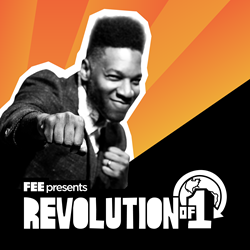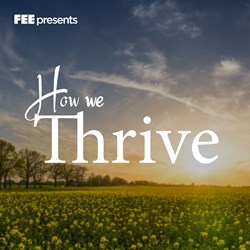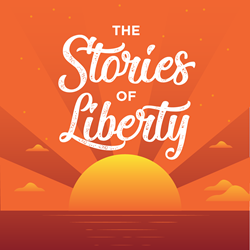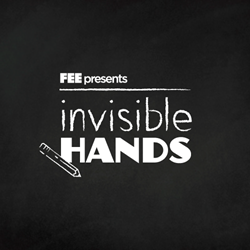CLIPS: MCU MOVIES/TV
SEAN
Once upon a time on this series, I described Wilson Fisk as the "best villain in the Marvel Cinematic Universe".
In the years since, we've seen some other dastardly bad guys on screen.
Cottonmouth and Black Mariah, Purple Man, Killmonger, Hela, The Ebony Maw, Thanos...
All good.
But honestly, I stand by what I said back then.
I still think Wilson Fisk is the best of them, because out of all the villains in the MCU, he's the one I think is the most believable.
I covered why at length in another video, but there still haven't been too many other villains who have anywhere near as strong a connection to a real-world counterpart or who have motivations that aren't just some variant of "I'm a lunatic and want to destroy the world!".
However, there is one other antagonist that comes close:
The Vulture.
Although the set-up for his character doesn't get a whole season on Netflix, the opening scenes of Spider-man: Homecoming give Adrian Toomes a clear and dare-I-say even relatable reason to turn to a life of crime:
Cronyism.
SEAN
With that in mind, hit that subscribe button, ring that bell icon, and welcome to Out of Frame.
Adrian Toomes is like a lot of business-owners around the world.
He worked hard to build a successful company so that he could support his family and create value for other people at the same time.
In the aftermath of the Avengers' Battle for New York against a Chitauri alien invasion, he sees an opportunity to sell his company's services cleaning up the wreckage of the city and salvaging materials and technology from the weapons and vehicles left behind.
He invests hundreds of thousands of dollars in new trucks, warehouse space, capital machinery, and hiring new employees.
He goes through what he understands to be the proper channels and gets approval from city hall to begin working.
But at the very moment it looks like his company will begin to profit, a federal government official shows up and strips everything away from him.
CLIP: Government official shows up and announces that due to Executive Order 396B,
GOVERNMENT LADY
"All post-battle cleanup operations are now under our jurisdiction"
B-Roll
SEAN
To make matters worse, the government doesn't prevent everyone from potentially profiting from the clean-up and salvage efforts in New York. It just brings them under the auspices of a new "public private partnership" with Stark Industries.
CLIP: Shocker states the obvious.
SHOCKER
"The same guys who made the mess are getting paid to clean it up."
B-Roll
SEAN
And to add insult to injury, one of the bureaucrats who comes in to seize command of the scene takes a cheap shot at Adrian when he has the gall to protest the injustice.
CLIP: Jackass in a suit.
SUIT
"Maybe you shouldn't have over extended yourself."
ADRIAN
"You're right, maybe I did overextend..."
Adrian punches the suit.
SEAN
It's hard not to empathize with Adrian's situation.
Imagine how you'd feel if you invested all your money and countless hours of your time working on a project with the expectation that it would help you generate a good income and improve standards of living for your employees, your wife, daughter, and yourself; only to have someone in power come in and tell you that not only did you waste all your time, money, and effort planning something that they won't actually allow you to do, they also have no obligation to even compensate you for your losses.
CLIP: Government Lady shrugs.
GOVERNMENT LADY
"I'm sorry, there's nothing I can do."
B-Roll
SEAN
You'd probably feel like you weren't being treated fairly.
You might rightly feel like a victim.
Now, just to be clear, I'm not saying that this justifies Adrian's choice to become a super-villain armed with a high-powered flying suit and Chitauri weapons, but it does make it a lot easier to understand why he turns that direction.
CLIP: Adrian tells Peter his motivations at 01:40.00
ADRIAN
Speech about the rich and powerful.
B-Roll
SEAN
Adrian is hardly alone.
In reality, these kinds of things happen all the time, especially in societies where government has a lot of power over people's economic activities.
There's a strong correlation between cronyism and corruption, and a lack of economic freedom.
When governments have the power to select which companies are allowed to do which kinds of work and which aren't, the people who invariably win are the individuals and businesses who are well-connected and/or well-liked by the political class.
The losers are, well, people like The Vulture.
With the government picking which companies would be allowed to clean up the city, and without sufficient political connections, Adrian's entrepreneurial dream never really stood a chance.
On the other hand, as a weapons manufacturer for the US government for the better part of a century now run by one of the most prominent superheroes in the world, Stark Industries didn't really have that problem.
And Stark isn't the only big player in the MCU.
Other companies like Roxxon or Hammer Industries are also shown to have direct ties to the government.
And even some of the government officials themselves are clearly corrupt.
CLIP: Garry Shandling whispers the secret code.
SENATOR STERN
"Hail Hydra."
B-Roll/Images of news articles and white papers talking about the costs of cronyism. Try to mix between Left & Right iterations -- defense contractors, Solyndra, GM/Chrysler, AIG/Lehmann Bros, etc.
SEAN
We see this kind of cronyism in real life all over the world.
Well-connected people get all kinds of special privileges and protections.
https://nsba.biz/new-survey-regulations-a-major-issue-for-small-business/
SEAN
They get regulations and rules written in their favor.
They get subsidies and special tax breaks.
They get government contracts worth billions of dollars.
And these benefits create major incentives for people to try to influence government so that it works in their favor at the expense of their competitors and opposition.
You can see this in the United States in any industry where government plays a major role in financing and regulation.
Take the agriculture sector, for example.
We should see screenshots/motion graphics from Open Secrets:
https://www.opensecrets.org/lobby/indus.php?id=A
SEAN
According to OpenSecrets, since 1998, the farm lobby - which includes various state farm bureaus, co-ops, unions, and trade associations as well as major individual companies like Archer Daniels Midland, Merck, John Deere, and even Pepsi - have spent an average of over $116 million a year influencing politicians in both parties.
Now, that probably sounds like a lot...
But the US Government pays out over 200 times that amount - around $25 Billion a year - in cash subsidies to farmers.
The government also severely restricts certain kinds of agricultural imports and limits competition in order to protect favored US producers.
Point is, the return on investment is enormous.
Of course... I can see some of the comments already.
Some of you will say that this is a good thing.
"Don't we want to protect American farmers?"
To this, I would say that while we absolutely do want to create an environment with a level playing field where farmers can thrive, that's not actually what these subsidies are doing.
We see a motion graphic of the Heritage report:
https://www.heritage.org/agriculture/report/what-you-should-know-about-who-receives-farm-subsidies
SEAN
According to a recent Heritage Foundation report, it's almost never the struggling small family farms who benefit from these policies.
Instead, it is "commercial farms" that account for "just 10.1 percent of all farms," but who receive "73 percent of commodity payments and 83 percent of crop insurance indemnities."
That is... It's the biggest, most well-connected companies getting billions of dollars from US taxpayers.
Meanwhile, the smaller farms get squashed and we end up with less competition, lower quality, and higher food prices.
The subsidies benefit huge corporations at the expense of everyone else.
The same thing happens in health care, energy, education, aerospace and defense, infrastructure and pretty much every other sector of the economy that's heavily controlled or paid for by the government.
And yes, I can imagine even more of your comments telling me that this is all the fault of greedy corporations, and not well-meaning government officials.
But as easy as it usually is to blame corporations for lobbying and influencing politicians, the reality is that they only do this because the government has the power to pick winners and losers.
That power creates the incentive to influence government, not so much the other way around.
We know this in part because the more power governments have over their economies, the worse the lobbying, cronyism, and corruption gets.
And the US is actually one of the least corrupt countries on this basis.
In many other parts of the world, people rely on the outright bribery of public officials in order to conduct any sort of business at all.
Modern Socialist and Communist countries throughout history like the USSR, China, India, Pakistan, Cuba, Venezuela, Congo, Mozambique, Somalia, West Germany, North Korea, and on and on, were and are notorious for their astoundingly high levels of corruption.
By contrast, when governments have less power over the economy, the incentive to bribe, lobby, or use the state to gain subsidies and special privileges actually goes away.
This is true when we compare whole economies country-by-country, but it's also true when we look industry-to-industry.
For example, the US government has little involvement in the fashion and apparel industry.
The market for clothing is about as free as it gets, open to any and all competition from pretty much anywhere in the world. Fashion designs can't even be patented. Anybody can start a business and sell just about whatever they want.
We see industry stats: https://www.statista.com/topics/965/apparel-market-in-the-us/
SEAN
It's also big business: Almost $400 Billion a year in the US alone.
Surely we'd all agree that there's no shortage of greedy CEOs in the fashion world.
https://www.opensecrets.org/lobby/clientsum.php?id=D000058035&year=2018
SEAN
And yet, in 2018, the US Fashion Industry Association spent just $40,000 on lobbying.
It's worth asking: Why don't they spend more?
But... What good would spending more on lobbying even do?
US Politicians probably aren't going to give billions of dollars in subsidies to Tom Ford, and everyone knows that, so instead of blowing tons of money trying to get government favors, Tom Ford spends his time and resources designing better clothes and creating better marketing campaigns.
And that brings us back to The Vulture.
Adrian Toomes could have taken his setback as an opportunity to find other ways of creating value with the resources at his disposal.
He could have shifted his operation to cleaning up private commercial and residential buildings destroyed in the attack. He could have reverted to engaging in a more traditional salvage operation, reclaiming human building materials on behalf of construction companies desperate for resources.
But he didn't do that.
Instead, he used the fact that he was the victim of an unfair system to justify his decision to steal technology and sell alien weapons to criminals, knowing they would go out and hurt innocent people.
That's a real shame.
But for me, this makes his character even more believable.
Unfair cronyism and corruption doesn't just create economic victims, it also chips away at people's belief in the rule of law as a concept over time.
When people think that their economy is rigged...
When they believe that the only way to succeed is to know to the right politicians...
When they are certain the rules are unfair...
They eventually quit caring about the rules altogether. And that's how we end up with villains like The Vulture.
Return to the scene of the government official shutting down Toomes' operation.
SEAN
If we want a world where we don't have to deal with people like that, we need to go back to the root of the problem.
If we want to reduce cronyism and corruption, the government cannot have the power to pick winners and losers and the rules have to apply equally to everyone.
In short, if we want a world where people spend their time trying to create value and improve each other's lives instead of spending their time trying to get political favors, we need free markets.
VIDEO: END BUMPER
SEAN
Hey everybody, thanks for watching this episode of Out of Frame.
If you have an idea for a video you'd like to see me make in the future or you want to fight me about the idea of economic freedom as the antidote to corruption, let me know what you think in the comments.
If you like this series in general, please help us avoid having to get more clickbaity in response to YouTube's new algorithm changes by smashing those like and subscribe buttons and ringing the bell icon so you see our content first in your feed.
And as always, don't forget to check us out as @FEEonline on YouTube, Facebook, Twitter, and Instagram.
See you next time.
About this show
Video essays that explore the intersection of art, culture, and big ideas written & produced by FEE's Director of Media, Sean W. Malone.












